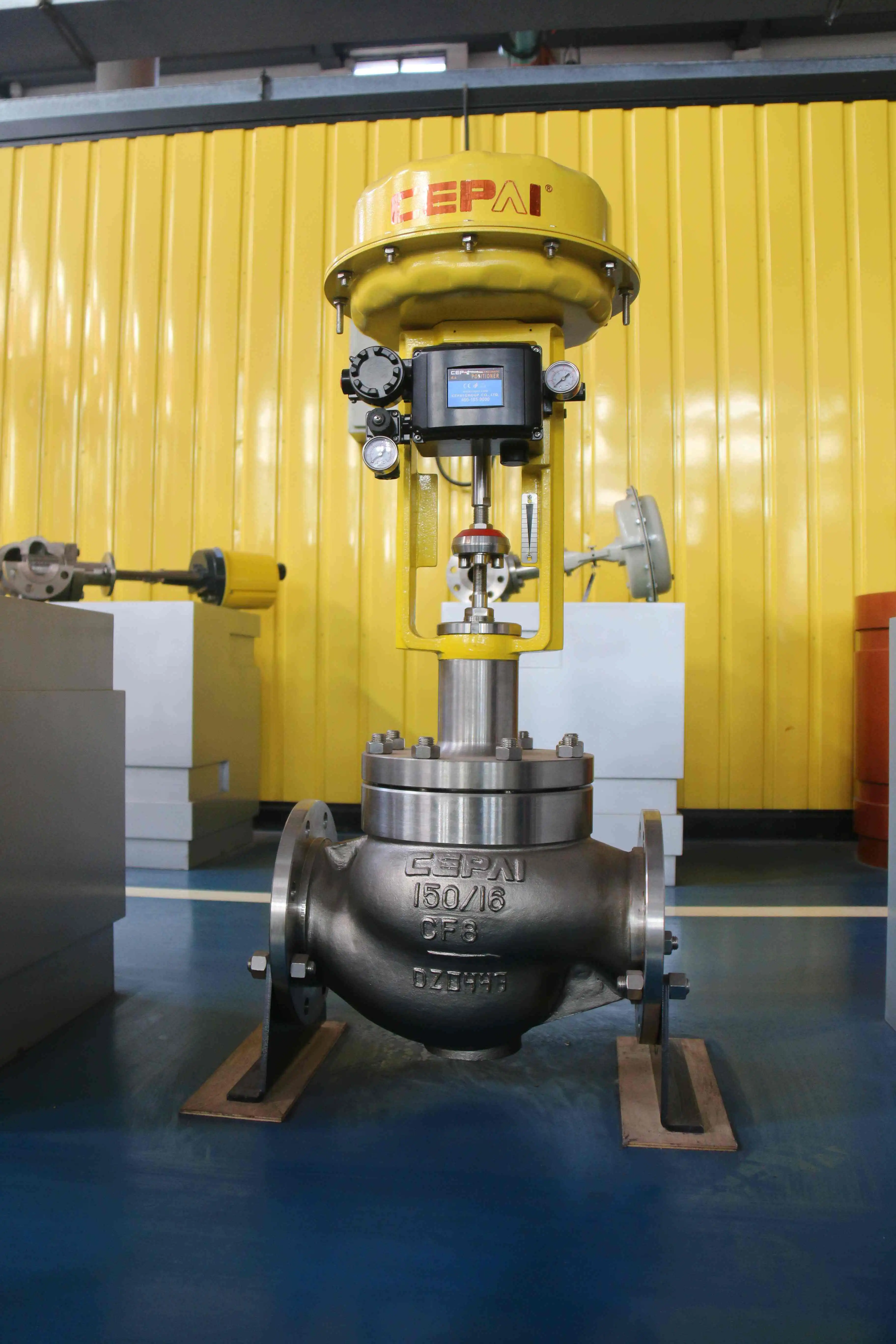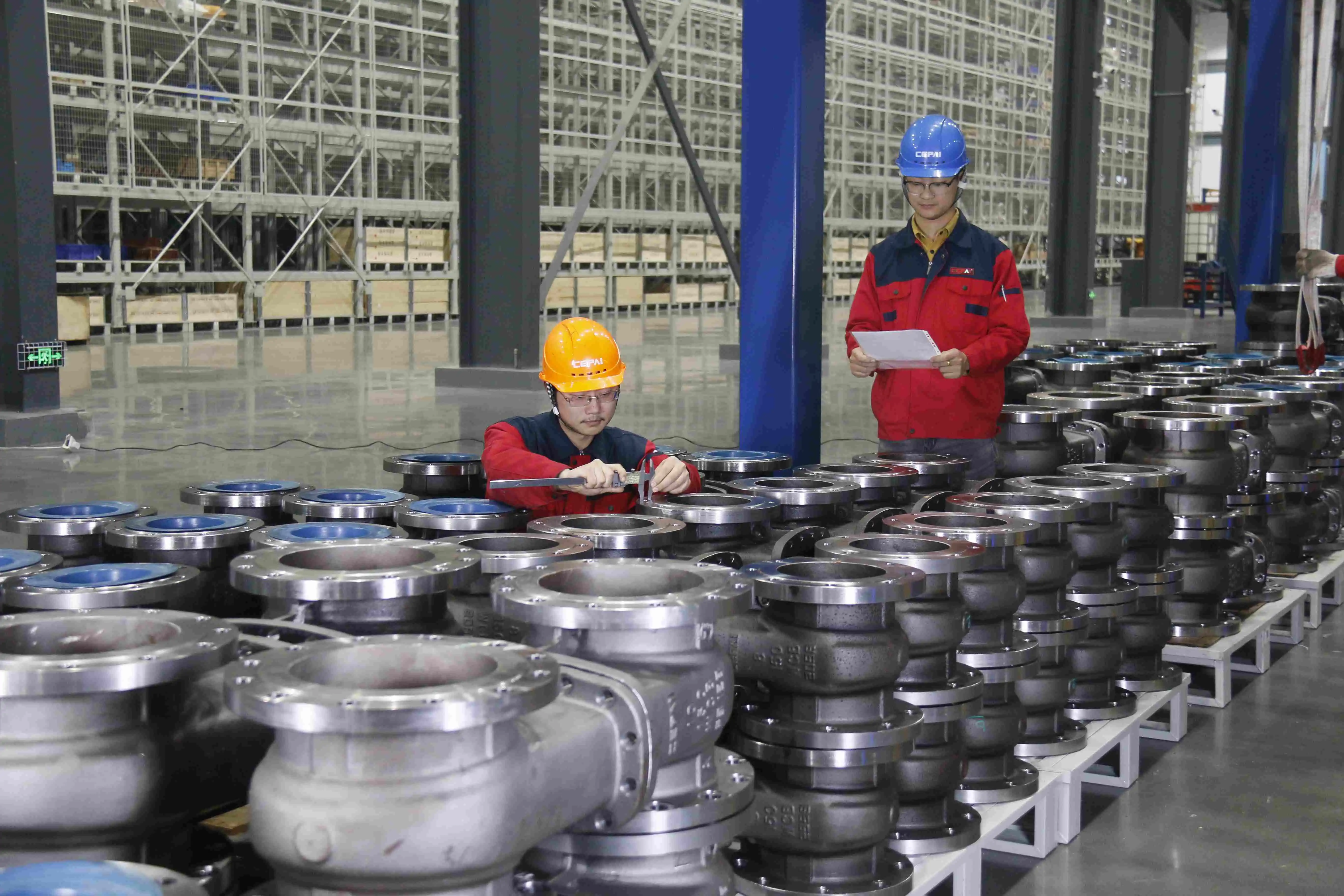The Role of a Pneumatic Sleeve Control Valve in Process Control
Picture this scenario: You're managing a critical petrochemical process where precise flow control is essential for safety and efficiency. Suddenly, your traditional control valve fails to maintain accurate regulation, causing process fluctuations that threaten both product quality and operational safety. This is where the advanced technology of a Pneumatic Sleeve Control Valve becomes indispensable. In modern industrial process control systems, achieving precise regulation of flow, pressure, and temperature parameters is crucial for maintaining operational excellence. The Pneumatic Sleeve Control Valve serves as a cornerstone technology that addresses these critical control challenges, offering unparalleled precision and reliability in demanding industrial environments. This comprehensive guide explores the essential role these sophisticated control devices play in optimizing process performance across various industrial applications.
Understanding Pneumatic Sleeve Control Valve Technology
-
Fundamental Design Principles
The Pneumatic Sleeve Control Valve represents a sophisticated engineering solution designed for precise regulation of gas, liquid, steam, and critical process parameters including pressure, flow, temperature, and liquid level. This innovative valve design incorporates a unique sleeve mechanism that provides exceptional control accuracy while maintaining structural integrity under demanding operating conditions. The fundamental principle behind the Pneumatic Sleeve Control Valve lies in its ability to modulate flow through a precisely engineered sleeve that moves within the valve body, creating variable flow passages that respond to pneumatic actuator signals. The sleeve design offers distinct advantages over conventional valve configurations by providing balanced flow characteristics and reduced vibration. The balance type design eliminates static unbalance and provides damping effects that reduce valve vibration, making it particularly suitable for applications with large pressure differentials. This engineering excellence ensures that the Pneumatic Sleeve Control Valve delivers consistent performance even in the most challenging operational environments, where traditional valves might struggle to maintain accuracy.

-
Advanced Actuator Integration
The integration of pneumatic actuators with sleeve control valve technology creates a synergistic system that delivers superior control performance. Pneumatic control valves receive signals from systems like PLCs or DCS to adjust the valve stem's position, enabling precise modulation based on real-time process requirements. The pneumatic actuator system provides rapid response times and excellent positioning accuracy, making the Pneumatic Sleeve Control Valve ideal for applications requiring tight process control tolerances. Modern Pneumatic Sleeve Control Valve systems incorporate advanced positioner technology that enhances control precision and provides diagnostic capabilities. These intelligent systems can monitor valve performance, detect potential issues before they become critical problems, and optimize control loop performance automatically. The combination of pneumatic actuation and sleeve design technology creates a robust control solution that meets the demanding requirements of contemporary process industries.
Applications and Performance Benefits in Industrial Processes
-
Critical Process Industries
The versatility of Pneumatic Sleeve Control Valve technology makes it indispensable across numerous industrial sectors. In petroleum and petrochemical applications, these valves excel in controlling complex hydrocarbon processes where precise flow regulation is essential for both safety and efficiency. The robust construction and reliable performance characteristics of the Pneumatic Sleeve Control Valve make it particularly well-suited for handling corrosive media and extreme operating conditions commonly encountered in oil and gas processing facilities. Power generation facilities rely heavily on Pneumatic Sleeve Control Valve technology for steam control applications, where precise regulation of steam flow and pressure is critical for turbine efficiency and safety. The balanced design characteristics of these valves provide stable control even under varying load conditions, ensuring optimal power plant performance. Additionally, the chemical processing industry benefits from the exceptional control accuracy and reliability offered by Pneumatic Sleeve Control Valve systems in applications involving aggressive chemicals and demanding process requirements.
-
Enhanced Control Performance
The superior performance characteristics of Pneumatic Sleeve Control Valve technology translate directly into improved process outcomes. The heavy-duty, rugged mechanism positions the sleeve resulting in accurate flow control, with no packing to maintain or seats to wear, significantly reducing maintenance requirements while maintaining exceptional control precision. This design advantage eliminates many common failure points associated with traditional valve technologies, resulting in improved system reliability and reduced lifecycle costs. The inherent stability of the sleeve control mechanism provides excellent control characteristics across the entire operating range. Unlike conventional valve designs that may exhibit poor control at low flow rates, the Pneumatic Sleeve Control Valve maintains consistent performance from minimum to maximum flow conditions. This characteristic is particularly valuable in processes requiring wide turndown ratios or variable operating conditions, where traditional valves might compromise control quality.
Design Features and Technical Advantages
-
Advanced Engineering Solutions
The technical superiority of Pneumatic Sleeve Control Valve design stems from sophisticated engineering solutions that address common control valve limitations. The sleeve mechanism provides inherently balanced operation, eliminating the static and dynamic forces that can compromise control accuracy in conventional valve designs. This balanced operation reduces actuator sizing requirements and improves overall system efficiency while maintaining precise control performance. Modern Pneumatic Sleeve Control Valve designs incorporate advanced materials and coatings that enhance durability and extend service life. The sleeve component can be manufactured from specialized alloys or coated with advanced materials to provide superior resistance to erosion, corrosion, and high-temperature operation. These material advances enable the Pneumatic Sleeve Control Valve to maintain performance integrity in applications that would quickly degrade conventional valve technologies.
-
Maintenance and Reliability Advantages
The simplified design of Pneumatic Sleeve Control Valve technology provides significant maintenance advantages compared to traditional control valve configurations. The elimination of packing maintenance requirements and seat wear issues reduces routine maintenance tasks and extends service intervals. This reliability advantage translates into reduced maintenance costs and improved plant availability, making the Pneumatic Sleeve Control Valve an economically attractive solution for critical process applications. The robust construction and proven reliability of Pneumatic Sleeve Control Valve systems make them ideal for remote or difficult-to-access installations where maintenance accessibility is limited. The extended service life and reduced maintenance requirements ensure consistent process performance with minimal intervention, contributing to overall operational efficiency and cost-effectiveness.
Installation and Operational Considerations
-
System Integration Requirements
Successful implementation of Pneumatic Sleeve Control Valve technology requires careful consideration of system integration factors. The pneumatic supply system must provide clean, dry compressed air at appropriate pressure levels to ensure optimal actuator performance. Proper instrument air quality is essential for maintaining long-term reliability and preventing contamination-related failures that could compromise control accuracy. Control system integration involves configuring the valve positioner and associated instrumentation to work seamlessly with existing process control infrastructure. Modern Pneumatic Sleeve Control Valve systems support various communication protocols and can be easily integrated with distributed control systems (DCS) or programmable logic controllers (PLC). Proper calibration and tuning of the control loop ensure optimal performance and stability across the entire operating range.
-
Performance Optimization Strategies
Maximizing the performance benefits of Pneumatic Sleeve Control Valve technology requires implementation of appropriate optimization strategies. Regular performance monitoring and diagnostic assessment help identify potential issues before they impact process performance. Advanced diagnostic systems can provide real-time feedback on valve performance, enabling proactive maintenance scheduling and performance optimization adjustments. Proper sizing and selection of Pneumatic Sleeve Control Valve components ensure optimal performance for specific application requirements. Consideration of factors such as flow coefficient, pressure drop, and control characteristics helps ensure that the selected valve configuration provides the desired control performance while operating within acceptable parameters. Professional application engineering support can help optimize valve selection and configuration for maximum performance benefits.

Future Developments and Industry Trends
-
Technological Evolution
The continuous evolution of Pneumatic Sleeve Control Valve technology incorporates emerging trends in industrial automation and digitalization. Smart valve technologies that integrate advanced sensors and diagnostic capabilities are becoming increasingly common, providing enhanced performance monitoring and predictive maintenance capabilities. These intelligent systems can optimize control performance automatically and provide valuable data for process improvement initiatives. Integration with Industrial Internet of Things (IIoT) platforms enables remote monitoring and optimization of Pneumatic Sleeve Control Valve performance. Cloud-based analytics and machine learning algorithms can analyze valve performance data to identify optimization opportunities and predict maintenance requirements. These technological advances represent the future direction of control valve technology, where intelligent systems provide autonomous optimization and maintenance support.
Conclusion
The Pneumatic Sleeve Control Valve represents a critical advancement in process control technology, offering superior performance, reliability, and versatility across diverse industrial applications. Its unique design provides exceptional control accuracy while minimizing maintenance requirements and maximizing operational efficiency.
Cooperate with CEPAI Group Co., LTD.
As a leading China Pneumatic Sleeve Control Valve manufacturer and China Pneumatic Sleeve Control Valve supplier, CEPAI Group Co., LTD. brings over 15 years of specialized expertise in high-end valve manufacturing. Our state-of-the-art facility spans 56,000 square meters and features the longest high-precision intelligent manufacturing production line in the Asia Pacific region, ensuring High Quality Pneumatic Sleeve Control Valve products that meet international standards.
CEPAI offers comprehensive solutions from China Pneumatic Sleeve Control Valve factory with competitive Pneumatic Sleeve Control Valve price and Pneumatic Sleeve Control Valve for sale options. Our China Pneumatic Sleeve Control Valve wholesale services support global clients with API, ISO, and CE certifications, backed by partnerships with major oil companies including PetroChina, Sinopec, and CNOOC.
Experience exceptional quality and innovation with our advanced Pneumatic Sleeve Control Valve solutions. Contact us at cepai@cepai.com for customized quotes and technical consultations. Bookmark this page for future reference - your trusted partner in industrial valve excellence awaits!
References
1. Smith, J.A. & Johnson, M.B. (2023). "Advanced Control Valve Technologies for Industrial Process Applications". Journal of Process Control Engineering, 45(3), 234-251.
2. Williams, R.C., Chen, L., & Anderson, P.D. (2022). "Pneumatic Actuator Systems in Modern Process Control". Industrial Automation Quarterly, 38(2), 89-104.
3. Thompson, K.E. & Rodriguez, C.M. (2024). "Sleeve Control Valve Design Principles and Performance Optimization". Fluid Control Technology Review, 29(1), 156-172.
4. Davis, A.L., Zhang, W., & Mueller, H.J. (2023). "Maintenance Strategies for Industrial Control Valve Systems". Plant Engineering and Maintenance Journal, 51(4), 78-95.
_1745994738000.webp)
Get professional pre-sales technical consultation and valve selection services, customized solution services.

About CEPAI


